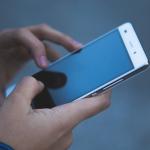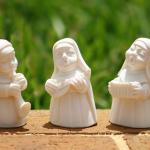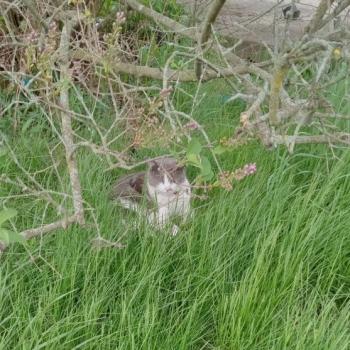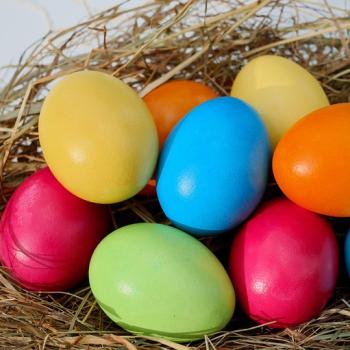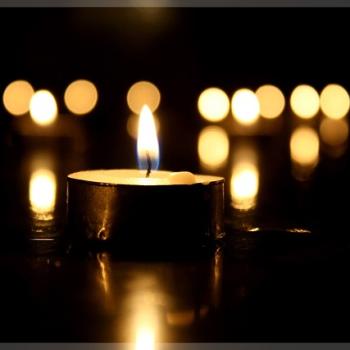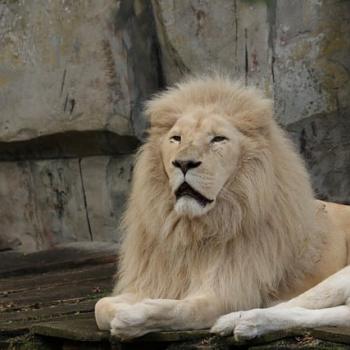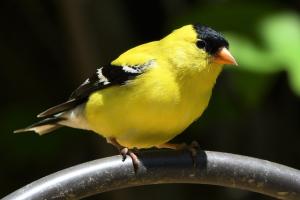
The birds took flight as soon as I came back to the garden.
Most every songbird in the neighborhood likes my sunflower wall. There are fat clumsy pigeons who nest in my gutters and cause leaks– I am supposed to hate the pigeons and chase them away, but I like them. They are the bird I would be if I were a bird. There are soft brown sparrows who look too round to fly. There is a majestic red cardinal and a cheeky blue jay. And there is also a goldfinch, a flash of lemon and black. The goldfinch is a very fast little bird. Sometimes the cardinal lets me get close, but not the goldfinch. The goldfinch wants nothing to do with me. He’s always all the way on the power lines above the haunted house before I can get out my phone for a photograph.
I will miss the sunflowers when they’re spent for the year. I will miss the color, and the privacy wall, but most of all the company they’ve brought me. I resolved to get some bird feeders for Autumn if there’s any money.
The birds watched me from the grassy lot across the alley as I fussed over the garden. This is the time of year when it all pays off: just the other day, I brought in a big bowl of tomatoes and made Adrienne fresh pasta sauce. There are at least two pumpkins getting a little fatter every day. And the experimental watermelon vine has one round fruit; it had been the size of a golf ball twenty-four hours ago. Now, it was the size of a baseball.
Everything was just as it ought to be in the backyard. In the front, of course, nothing was right. Jimmy the Mechanic has the car up on the jack with a wooden board under her back tires. The fuel pump came in and he replaced it, which helped a great deal but didn’t fix it. He’s discovered that everything to do with the fuel is clogged with a substance technically known as “crud.” There was crud in all the fuel injectors and in every piece he brought home to clean. He pulled out the backseat of the car to open the fuel tank underneath, and found lumps of crud in among the gasoline like dumplings. There is crud in the catalytic converter, which he’s going to clean just as soon as he gets the chance.
I wanted to go swimming so badly I was nearly frantic. But for the moment, I was trapped, trapped for the fifth week in a row. No lake, no hikes, no church, no shopping except on the bus, nothing.
The birds settled among the sunflowers, singing, as I left.
The mother of the Baker Street Irregulars wanted my help with her summer EBT card. In this school district, all the children get a free one-use food stamp card, essentially a gift certificate for groceries, with $120 on it. One of her children’s cards wasn’t being recognized by the automatic voice at the EBT hotline. I came over and sat on the porch with her, trying my best, but neither of us could make hide nor hair of it. The number on the back of the card kept getting rejected as wrong, but the robot didn’t tell us why.
Eventually, we gave up.
I fumbled for what a normal person would do, sitting on a friend’s porch at a time like this. It’s a result of my autism that I often feel like an alien in normal human interactions. It’s a result of being from a big city and a completely different culture than my neighbors that I feel even more lost than ever. What does a human do, in northern Appalachia on a summer afternoon? They stay right here on the porch. They make small talk.
The mother and I chatted about our children and how they were eager for school, or dreading it. We chatted about going to Raccoon Creek Park to the lake beach just as soon as the car is back to running. The man called Dad has a car now, for the first time ever. Maybe we could all meet for an end of summer picnic, but how could we ever keep the autistic Baker Street Irregular out of mischief? We talked about how irritating it was that somebody was still setting off fireworks late at night, even though it was almost August. The police had been called, but they hadn’t found the nuisance yet.
The goldfinch and three fat brown sparrows waded in a small puddle in front of the house.
“Is that a yellow bird?” said the mother.
“It’s a goldfinch!” I said proudly.
“I never seen a yellow bird around here before. I seen a cardinal and a bluejay but never a yellow bird.”
“I never saw one until I started growing sunflowers!”
The goldfinch flew off as if he were a spark from a firework himself.
When I got home, I unrolled the hose from the house of the man who brought water. We still have that summer-long permission to water the garden with the hose whenever we need it. I soaked the ground around those tomatoes and sprayed a glittering arc of water over the pumpkins to the rose bush.
The rose has a brand new flower, five wide open petals like the emblem of the Tudors.
It felt like a miracle, somehow.
The greatest, most lavish, most impossible miracle is the first one: and God said, “let there be.”
The first miracle is that things are, instead of not being. That flowers and pigeons and goldfinches, friends and neighbors, the Appalachian mountains, and useless people like me exist. That somewhere, in the eternal now known as “the beginning,” was a Being so psychotically hopeful that the Being said “let there be,” and we came to be.
I think I am going to be all right.
Mary Pezzulo is the author of Meditations on the Way of the Cross, The Sorrows and Joys of Mary, and Stumbling into Grace: How We Meet God in Tiny Works of Mercy.


